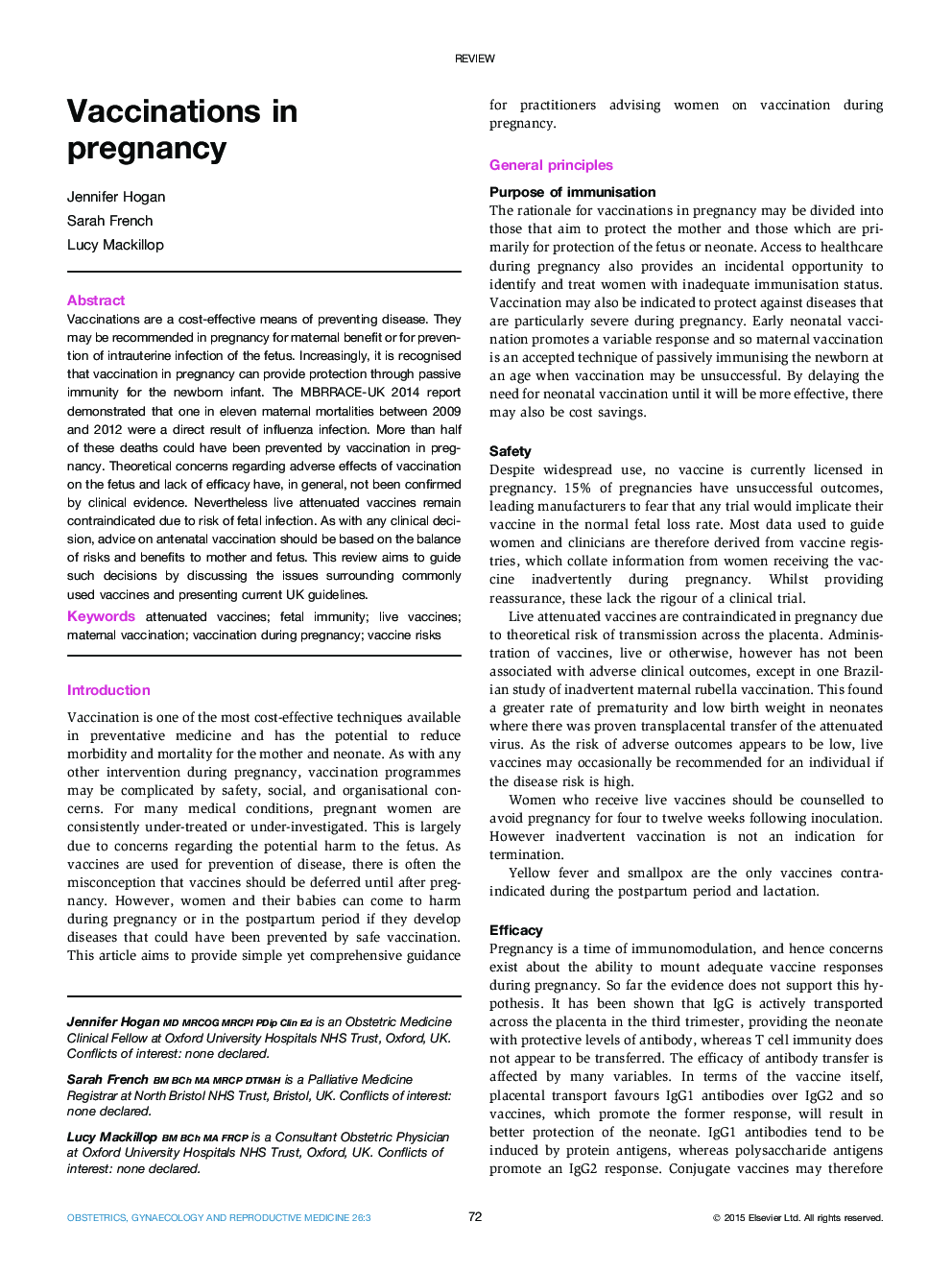| Article ID | Journal | Published Year | Pages | File Type |
|---|---|---|---|---|
| 3966520 | Obstetrics, Gynaecology & Reproductive Medicine | 2016 | 8 Pages |
Vaccinations are a cost-effective means of preventing disease. They may be recommended in pregnancy for maternal benefit or for prevention of intrauterine infection of the fetus. Increasingly, it is recognised that vaccination in pregnancy can provide protection through passive immunity for the newborn infant. The MBRRACE-UK 2014 report demonstrated that one in eleven maternal mortalities between 2009 and 2012 were a direct result of influenza infection. More than half of these deaths could have been prevented by vaccination in pregnancy. Theoretical concerns regarding adverse effects of vaccination on the fetus and lack of efficacy have, in general, not been confirmed by clinical evidence. Nevertheless live attenuated vaccines remain contraindicated due to risk of fetal infection. As with any clinical decision, advice on antenatal vaccination should be based on the balance of risks and benefits to mother and fetus. This review aims to guide such decisions by discussing the issues surrounding commonly used vaccines and presenting current UK guidelines.
